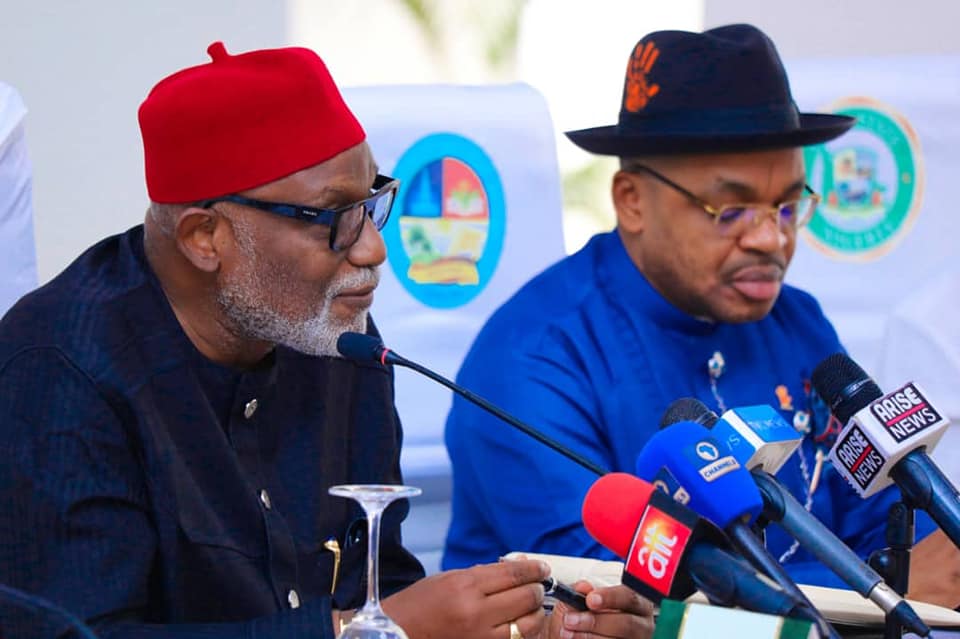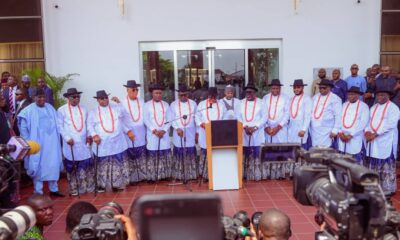Business
Nigeria Owes N35.5trn, As Local Debt Stands At N21trn

The nation’s public debt stock stood at N35.465trillion as at June 30, Director-General of the Debt Management Office (DMO), Ms. Patience Oniha, has disclosed.
Total public debt is composed of the domestic and external debt of the Federal Government, the 36 state governments and the Federal Capital Territory (FCT).
Nigeria’s total public debt stock was N33.107trillion or $87.239billion, as at March 31, 2021.
This indicated a N2.358trillion rise in the debt stock from the end of the first quarter of the year to the end of the second quarter.
A breakdown of the public debt figure under review indicated that that external debt was N13.711trillion, representing 38.66 per cent.
On the other hand, domestic debt was N21.754trillion, representing 61.34 per cent of the total stock.
The Federal Government accounted for N11.828trillion of the external debt and N17.632trillion of the domestic debt.
States and the FCT’s external debt stood at N1.883trillion, with a domestic debt stock of N4.122trillion.
The breakdown of the external debt showed that the bulk of the debt is owed to multilaterals (World Bank Group and the African Development Bank Group), which accounted for 54.88 per cent.
The next highest category is the commercial debt (Eurobonds and Diaspora bonds) which accounted for 31.88 per cent; while bilateral (China, France, Japan, India and Germany) stood at 12.70 per cent.
Promissory Notes represent 0.54 per cent.
Oniha explained that the nation had several benefits from going to source funds which included showcasing Nigeria in a positive light in the international financial markets where large pools of capital are available.
In addition, she said, “The sovereign Eurobonds serve as a benchmark on the back of which several local banks have issued Eurobonds. Amongst them are Zenith Bank, Access Bank, UBA, FBN, Ecobank Nigeria and Fidelity Bank. This window opened by the sovereign enabled these Nigerian Banks raise Tier-2 Capital to meet regulatory requirements and enhanced their capacity to lend to, and, support local borrowers.
“Issuing Eurobonds has been a potent tool for building up Nigeria’s External Reserves. A healthy level of External Reserves supports the Naira Exchange Rate and Nigeria’s sovereign rating.
“Raising funds externally through Eurobonds to finance budget deficits reduces the level of sovereign borrowing in the domestic markets. The benefits of this are many: mitigates the risk of crowding out the private sector (more funds available at moderate rates for other borrowers in the domestic economy).
“The Eurobonds are also listed in Nigeria’s two securities exchanges: The Nigerian Exchange Limited and FMDQ Securities Exchange Limited. This increases the size of these exchanges and diversity of instruments listed.
“The Eurobonds are actually issued as part of approved Government Borrowing Plans, usually in the FGN’s annual budgets, for financing capital projects thereby reducing the infrastructure gap.”
The D-G explained that the issues of rising debt, high debt service to revenue ratio and utilization of borrowed funds were germane.
She said that members of the public should not lose sight of the facts which necessitated borrowing which included, “Huge Infrastructure Deficit , Recession (twice in the last six years), Consecutive Budget Deficits, Low Revenue Base, compounded by dependence on one source – crude oil which prices crashed and at a point, at the peak of the Covid-19 pandemic had no buyers.”
Oniha stressed that Nigerians must challenge themselves and support the Federal Government on the need to raise revenue.
She noted that the 5 per cent tax as a percentage of the Gross Domestic product (GDP) was too poor for Nigeria and that concerted efforts must be made to increase the nation’s revenue.
The D-G disclosed that work has already started on this, adding the Federal Government debt to the Central Bank of Nigeria which was at about N10trillion at the beginning of the process.
She said, “We are working towards recognizing it, getting the proper approvals to include it in the public debt stock. Where we are is to get the necessary approvals to convert it into a tenured debt.”
On the foreign exchange implications for debt service, especially the fall in the value of the Naira, in recent times, the DMO boss said, “we have initiated actions towards managing that risk.”
Business
Expert Tasks Government On Civil Maritime Security Unit
Business
Bayelsa Recommits To Infrastructure, Sectoral Dev … Rakes In N227.185b From IGR
Business
NDYC Seeks NDDC Commercialisation … Uncompleted Projects Completion
-

 News2 days ago
News2 days agoFubara Attends PDPGF Meeting In Asaba …..Back Court Verdict On National Secretary Position
-
Nation2 days ago
Okehi Clan Demands Recognition, Upgrade Of Chieftaincy Stool
-
Business2 days ago
REA, RESCOs Sign Agreement To Establish 23 Mini-grids
-
News2 days ago
Telecom Operators Dismiss Talks With NLC On Tariff Hike
-
Politics2 days ago
How Akande Lied Against Me Over Bola Ige’s Case – Ladoja
-
Rivers2 days ago
Police Confirm Vehicle Insurance Policy Enforcement In Rivers
-
Nation2 days ago
Foundation Seeks Community Approach To Tackle Climate Change
-
Business2 days ago
Oil Production Resumption: Ogoni Youths Seek Inclusion In FG’s Plans

